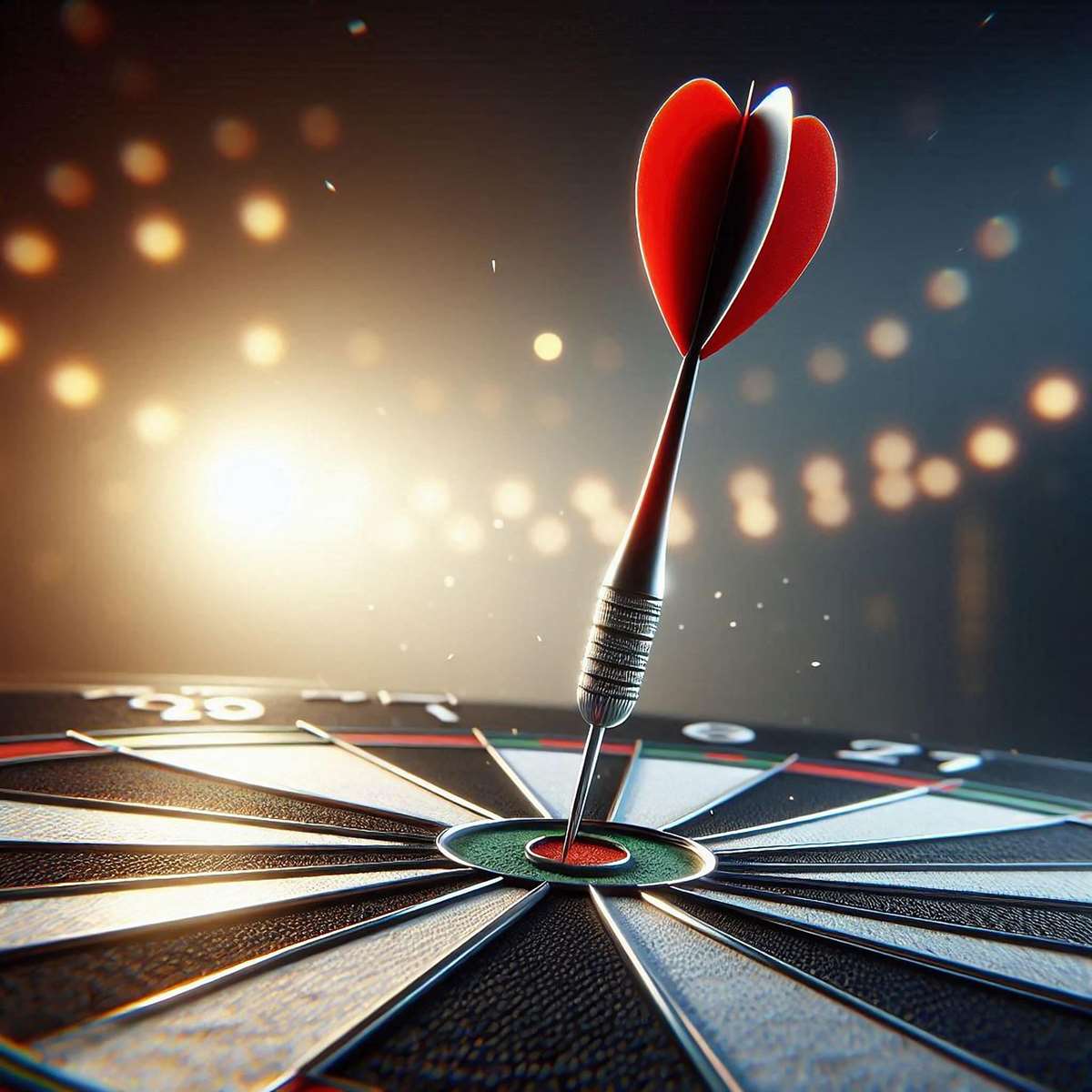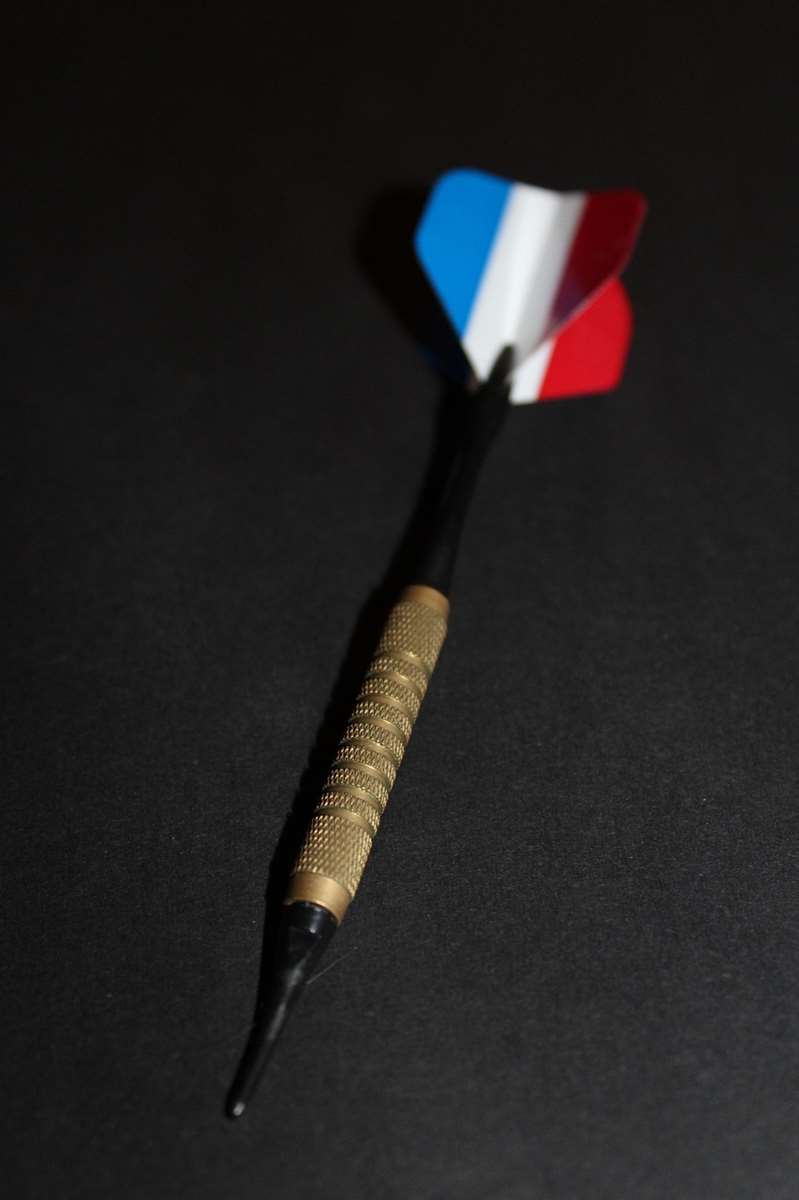The darts referee is the unsung hero of every match, ensuring fair play and smooth gameplay by enforcing the rules, calculating scores, and announcing results with precision. This article delves into the multifaceted role of the darts referee, exploring their responsibilities, qualifications, and the crucial impact they have on the integrity of the sport.
⚠️ Still Using Pen & Paper (or a Chalkboard)?! ⚠️
Step into the future! The Dart Counter App handles all the scoring, suggests checkouts, and tracks your stats automatically. It's easier than you think!
Try the Smart Dart Counter App FREE!Ready for an upgrade? Click above!
Understanding the Role of The Darts Referee
The role of the darts referee extends far beyond simply calling out scores. They are the authority figure on the oche, responsible for maintaining order, resolving disputes, and guaranteeing that the game adheres to the established rules of darts. They must possess a deep understanding of the game, excellent communication skills, and the ability to remain calm and impartial under pressure. Knowing where the bullseye is, what the rules are, and how to manage a crowd are all important factors. Think of the darts referee as the glue holding the competition together. Without them, chaos would quickly ensue. Accurate scoring is imperative, and the referee must be vigilant in tracking each dart thrown. This requires not only sharp eyesight but also quick mental arithmetic and the ability to announce the score clearly and concisely.

One of the most critical aspects of the referee’s job is ensuring fair play. This includes verifying the dartboard setup is correct, monitoring the players’ conduct, and addressing any instances of cheating or unsportsmanlike behavior. A good referee is proactive in preventing problems before they arise, setting a clear tone for the match and commanding respect from both players and spectators.
Key Responsibilities of a Darts Referee
- Scorekeeping: Accurately calculating and announcing the score after each throw.
- Rule Enforcement: Ensuring all players adhere to the rules of the game.
- Dispute Resolution: Settling disagreements and making final rulings on any contested throws.
- Match Management: Maintaining the flow of the game and ensuring it proceeds smoothly.
- Equipment Verification: Checking the dartboard, oche, and other equipment for compliance with regulations.
Qualities and Skills of an Effective Darts Referee
Being a successful darts referee requires a specific set of qualities and skills. It’s not just about knowing the rules; it’s about applying them fairly and consistently while maintaining a professional demeanor. Here are some of the most important attributes:
- Impartiality: The ability to remain neutral and unbiased, treating both players equally.
- Knowledge of the Rules: A thorough understanding of the rules of darts, including any variations specific to the tournament.
- Communication Skills: Clear and concise communication, both verbal and non-verbal, is essential for announcing scores, explaining rulings, and managing the match.
- Mental Arithmetic: The ability to quickly and accurately calculate scores, especially under pressure.
- Attention to Detail: A keen eye for detail, ensuring that every throw is properly recorded and that no rules are violated.
- Calmness Under Pressure: The ability to remain calm and composed even in tense situations, such as close matches or disputed calls.
- Assertiveness: The confidence to make firm decisions and enforce the rules, even when facing opposition.
Beyond these core skills, a good darts referee also possesses strong interpersonal skills. They can effectively communicate with players, officials, and spectators, fostering a positive and respectful atmosphere. They are also able to adapt to different personalities and situations, tailoring their approach to the specific needs of each match.

How to Become a Darts Referee
The path to becoming a darts referee varies depending on the level of competition you aspire to officiate. For local leagues and tournaments, formal certification may not be required, but a solid understanding of the rules and a commitment to fair play are essential. For professional events, such as those sanctioned by the Professional Darts Corporation (PDC) or the World Darts Federation (WDF), specific qualifications and training programs are typically necessary.
Here are some general steps you can take to pursue a career as the darts referee:
- Learn the Rules: Thoroughly familiarize yourself with the official rules of darts, including any variations specific to different organizations or tournaments.
- Gain Experience: Start by officiating local matches and tournaments to gain practical experience and develop your skills.
- Seek Mentorship: Connect with experienced referees and learn from their knowledge and expertise.
- Consider Certification: Explore certification programs offered by darts organizations, such as the PDC or the WDF.
- Network: Build relationships with players, officials, and other members of the darts community.
Many local darts organizations provide courses and certifications. These courses often cover not only the rules but also best practices for managing matches, resolving disputes, and handling difficult situations. Furthermore, they provide an opportunity to network with other aspiring referees and gain valuable feedback from experienced officials.
The Impact of The Darts Referee on the Game
The darts referee’s presence has a profound impact on the overall quality and integrity of a darts match. A skilled and impartial referee can create a fair and enjoyable environment for both players and spectators, ensuring that the game is played according to the rules and that the best player ultimately prevails. A well-officiated match not only boosts the credibility of the sport but also enhances the overall experience for everyone involved. The referee’s ability to maintain order and quickly resolve disputes can prevent frustration and ensure that the focus remains on the competition.
However, a poor referee can have the opposite effect, creating confusion, frustration, and even controversy. Inaccurate scoring, inconsistent rule enforcement, or biased decision-making can undermine the integrity of the game and damage the reputation of the tournament. The accuracy of the referee cannot be understated.

The impact of the darts referee also extends to the players themselves. A confident and authoritative referee can help players feel secure in the knowledge that the game is being officiated fairly. This allows them to focus on their performance and play their best. A supportive referee can also provide encouragement and guidance, helping players to manage their emotions and stay focused under pressure.
Dealing with Challenging Situations as a Darts Referee
Being a darts referee isn’t always easy. Referees often encounter challenging situations that require quick thinking, diplomacy, and a firm understanding of the rules. Some of these situations may include:
- Disputed throws: When players disagree about whether a dart landed in the correct scoring area.
- Equipment malfunctions: When the dartboard, oche, or other equipment breaks down or becomes damaged.
- Unsportsmanlike conduct: When players engage in inappropriate behavior, such as arguing with the referee or taunting their opponent.
- Crowd disturbances: When spectators become disruptive or unruly.
To handle these situations effectively, referees need to remain calm, impartial, and assertive. They should listen carefully to all sides of the story, gather as much information as possible, and then make a fair and reasoned decision based on the rules. They should also be prepared to explain their decision clearly and concisely, and to stand their ground if challenged. A good referee also has to consider the light that is being projected and how it may impact player performance.
In cases of unsportsmanlike conduct or crowd disturbances, referees may need to take disciplinary action, such as issuing warnings or ejecting offenders from the venue. They should also be prepared to call on security personnel for assistance if necessary.

The Future of Darts Refereeing
As the sport of darts continues to grow in popularity, the role of the darts referee is likely to become even more important. With more tournaments, bigger prize pools, and a larger global audience, the demand for qualified and experienced referees will continue to increase. Furthermore, technological advancements may introduce new challenges and opportunities for referees. For example, automated scoring systems and video replay technology could help to improve accuracy and reduce disputes. However, they could also require referees to develop new skills and adapt to new ways of working.
The darts community must invest in training and development programs to ensure that there is a sufficient supply of qualified referees to meet the growing demand. These programs should focus on not only teaching the rules but also developing the interpersonal skills, communication skills, and decision-making abilities that are essential for success. Moreover, the darts community should recognize and reward the contributions of referees, providing them with opportunities for advancement and ensuring that they are treated with respect.
Advanced Techniques for Darts Referees
For referees aspiring to excel at the highest levels, mastering advanced techniques is essential. This includes developing strategies for managing particularly challenging players, anticipating potential conflicts, and using non-verbal communication effectively. Some advanced techniques might include:
- Proactive Conflict Resolution: Identifying potential issues before they escalate and addressing them early.
- Non-Verbal Communication Mastery: Using body language and facial expressions to convey authority and control.
- Player Psychology: Understanding the mental game of darts and adapting refereeing style accordingly.
- Crowd Management Skills: Techniques for controlling and calming rowdy or disruptive crowds.
Furthermore, keeping up-to-date with rule changes and interpretations is critical. Attending workshops and seminars, and engaging with other referees to discuss complex scenarios, are all valuable ways to stay ahead of the game. Utilizing tools like a Dart Counter App (https://dartcounterapp.com/) can also greatly aid in the quick and accurate calculation of scores during fast-paced matches.

Conclusion
The darts referee plays a vital role in ensuring the fairness, integrity, and enjoyment of the sport. Their responsibilities extend far beyond simply calling out scores, encompassing rule enforcement, dispute resolution, and match management. To be successful, a darts referee needs a deep understanding of the game, excellent communication skills, and the ability to remain calm and impartial under pressure. As the sport of darts continues to grow, the demand for qualified and experienced referees will only increase. By investing in training and development programs, and by recognizing and rewarding the contributions of referees, the darts community can ensure that the game remains fair, competitive, and enjoyable for all. If you’re passionate about darts and possess the qualities mentioned, consider exploring the rewarding path of becoming the darts referee. Learn the rules, gain experience, and take the first step toward becoming a crucial part of the darts world.
Hi, I’m Dieter, and I created Dartcounter (Dartcounterapp.com). My motivation wasn’t being a darts expert – quite the opposite! When I first started playing, I loved the game but found keeping accurate scores and tracking stats difficult and distracting.
I figured I couldn’t be the only one struggling with this. So, I decided to build a solution: an easy-to-use application that everyone, no matter their experience level, could use to manage scoring effortlessly.
My goal for Dartcounter was simple: let the app handle the numbers – the scoring, the averages, the stats, even checkout suggestions – so players could focus purely on their throw and enjoying the game. It began as a way to solve my own beginner’s problem, and I’m thrilled it has grown into a helpful tool for the wider darts community.